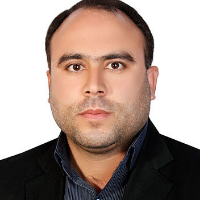Analysis of religious discourse and intellectual consensus inthe creation of the Constitutional Revolution
Author(s):
Article Type:
Research/Original Article (بدون رتبه معتبر)
Abstract:
The purpose of this article is to explain how and origin of religious discourse andintellectual consensus on development is the Constitutional Revolution. Absolute rule ofpolitical and cultural traditionalism of the main reasons for the neglect of attention tothe reform and development of pro-reform forces were evaluated. So this objective, theforces of moderate religious discourse and intellectual consensus to change the absolutenature of the state and political structure adjustment and participation of representativesof the people. The findings, the political reform and traditionalism absolutist rulers ofthe reasons for their backwardness is evaluated. Political and constitutional modelimported stretch it to fit the expectations of Iranians, not society. As well as cultural,ethnic and historical circumstances of the period were not mentally prepared andimplemented rationally and objectively accepting new patterns also took place.Distribution of power and the role of people in their destiny, political and economicindependence, decolonization and their influence, access to components such asdevelopment, welfare, benefit from the achievements of the new consensus forstructural changes and objectification was constitutional discourse fans. It further trieswith descriptive - analytical and based on library studies and discourse analysis to theformation of national consensus and the fundamental causes and contexts that wererevolutionary movement pay.
Language:
Persian
Published:
Journal of History, Volume:12 Issue: 46, 2017
Pages:
115 to 138
https://www.magiran.com/p1979155
سامانه نویسندگان
مقالات دیگری از این نویسنده (گان)
-
The Ceremony of Honoring the Deceased in Nuristan Province of Afghanistan (Case Study: 19th Century AD)
Mohammadjawed Joya, Dariush Nazari *, , Amir Ahangaran
Journal of Greate Khorasan, -
Conceptual study of drawn-out aspirations with emphasis on the process of controlling them in Alawi Tradition
Houshang Garavand *, , Abedin Darvishpour
Irainian Journal of Culture in The Islamic University,


